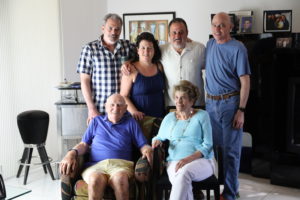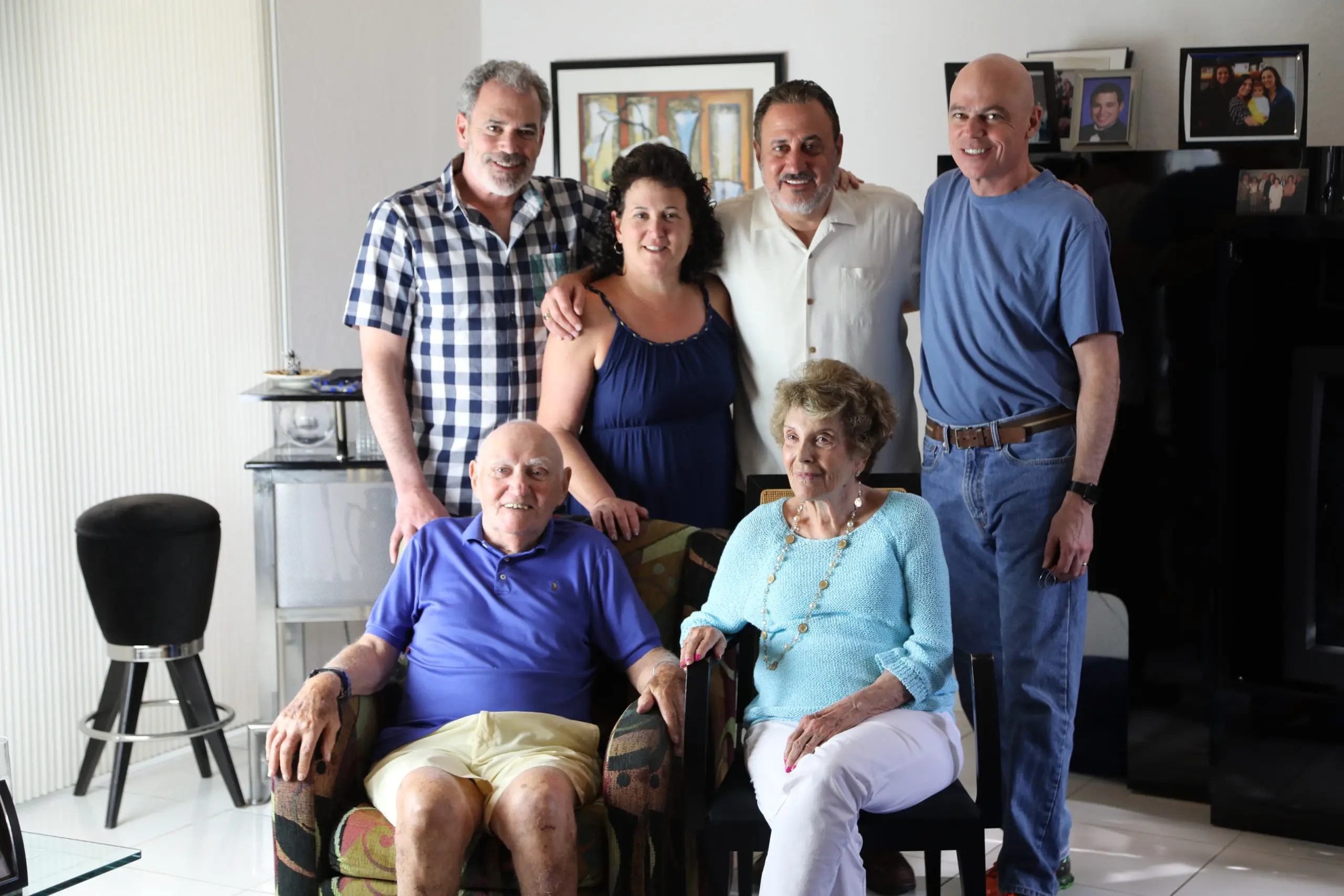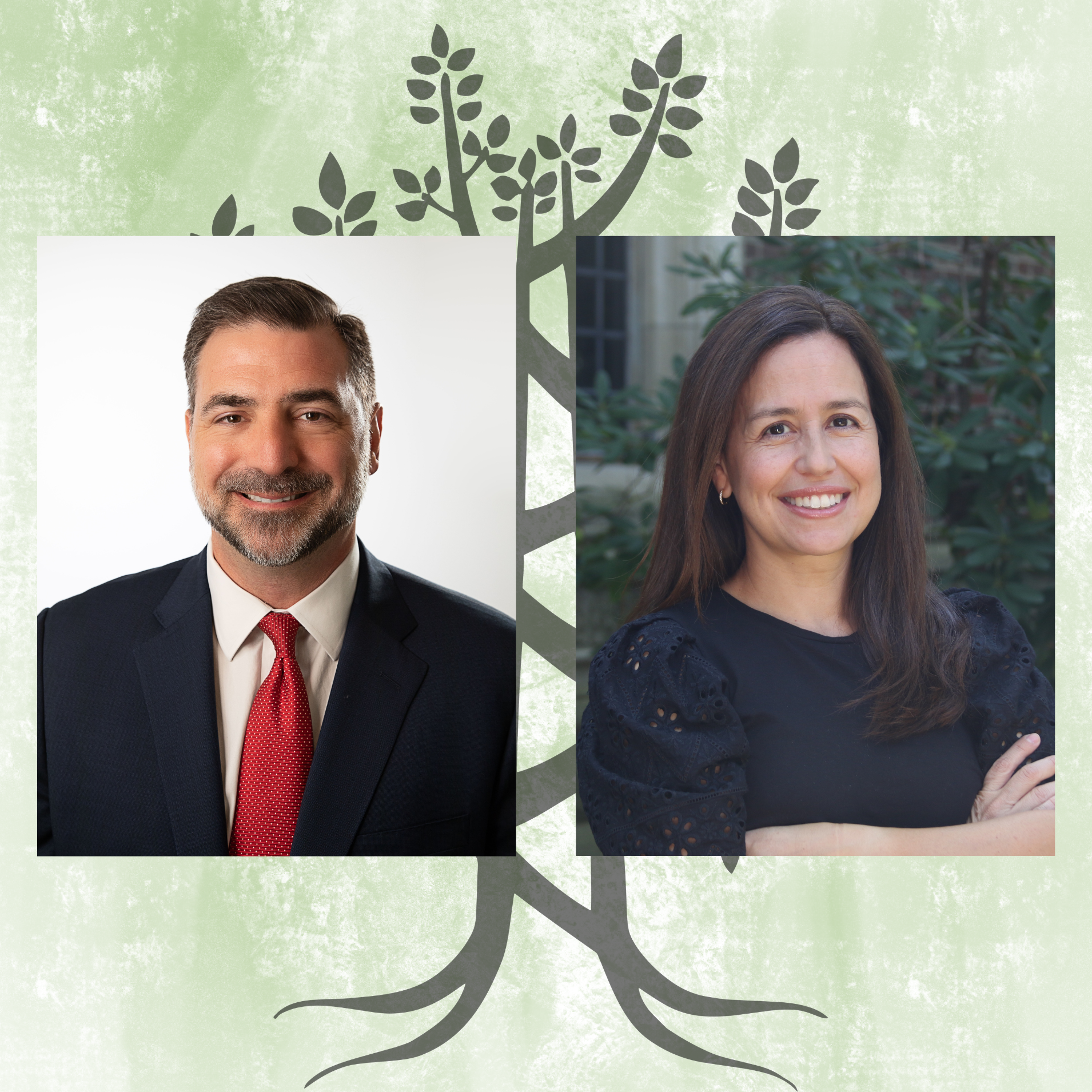
Eugene Kohan
1926–2020
Watch a recording of Eugene sharing his story.
Eugene was born in Nové Zámky, in what is now Slovakia, as a child of an arranged marriage between an Orthodox father and a “liberated” mother. His father taught cheder in the Nové Zámky synagogue. Their fundamental difference led to divorce in 1927, and though he soon disappeared from their lives when Eugene, his mother, and 2 sisters moved to Berehove (Beregovo, now in the Ukraine) to live with his grandparents. He grew up among cousins and uncles there, went to school, studied Talmud and became a Bar Mitzvah, and played a lot of sports – hockey, soccer, and basketball. His mother was a business woman selling vegetables in the local market.
Germany annexed the western portion of Czechoslovakia in 1938, and completed its conquest the following year. Life became more restrictive for the Jews of Berehove – which had been an otherwise multi-cultural town, and relatively tolerant of its diverse citizenry. In 1940 Eugene was sent to live with an uncle in Budapest who worked in the leather business. However, his uncle was soon put into an internment camp where he was put to forced labor for the compliant regime in Hungary. Eugene became homeless, living on the street for 5 months until he found work in a bakery. He then was taken in by the owners, a childless, mixed Jewish/Gentile couple, until the spring of 1944.
Eugene was at a youth group outing when the Germans took over control of Hungary that spring, and was soon discovered to be a Jew among the other boys in the outing. No one came to claim him, and he soon found himself under Gestapo control.
He was interred, and sent from Budapest to Bor in Yugoslavia as forced laborers to work in mines and other projects in service of the war effort. Life was difficult, conditions were terrible, and retribution for infractions severe. Eugene labored there for seven months.
The prisoners – two groups of 3000 each – were then force-marched over five weeks back into Germany, ahead of the advancing Soviet armies, while the retreating German troops would shoot the Jews they passed on the road “for sport”. At one point, Eugene was pulled over the side of the road to be shot, but somehow convinced a guard that he had gold to give him if he was allowed to retrieve it. Whether he was believed or simply came across a compassionate soul, he was allowed to return to the mass of marchers, where he blended back in with the mass of prisoners. Few survived this ordeal – only 600 of the original 3000 in Eugene’s group.
He arrived in Flossenbürg, Germany – a journey of 700 miles – a transit camp. From there, the survivors were sent to a variety of other camps; Eugene was trucked to Buchenwald, where international prisoners were kept, and then to a sub-camp at Ordruff. He worked in a burial detail for the victims of the Sonderkommandos who managed the camp, the grim work came with better rations, and a better chance to live yet one more day. The life span of those working in this role usually lasted only 3 months, after which you were shot and replaced by another willing inmate. In Eugene’s case, the camp was liberated after 6 weeks by the US 6th Armored Division. The date was April 11th, 1945.
Eugene emerged from the war without a family. His mother died of a heart attack while he was still in Budapest. His sisters both died in the Holocaust – one had married and was attempting to flee to England, but was caught and shot on the train. The other was killed in France near the Swiss border, where she was attempting to cross over to safety.
After the war, he lived in a displaced persons camp, where he taught soccer to the other residents and youth among them. He emigrated to the US in 1948/9, connecting with his mother’s sister who helped him settle in the Bronx. After a stint in the US Army – which brought him back to Europe, now as a soldier – he worked with his uncle in Bridgeport, CT in the leather business. He met Olga Salomon, an immigrant from Cuba, and they married in 1953, and established a conservative household where they raised their four children. In his later years, Eugene met one of the US troops who helped liberate Buchenwald at a pool, and together they embarked on a speaking tour to schools about that experience.
Rich Kohan describes his father as hard-working, but with an ever-present positive outlook on life. Eugene was not judgmental, and taught that we should be constructive, not destructive.
“I did everything to survive – and that’s what happened.”


